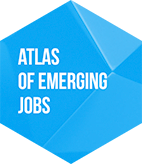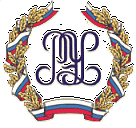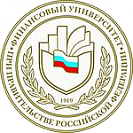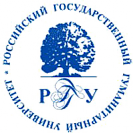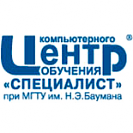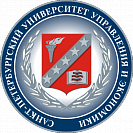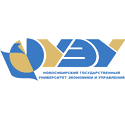Tourism and hospitality
The Soviet Union had a fairly developed system of domestic tourism, supported by the closed nature of the country, but the situation has changed for the worse in the industry since 1991. On the other hand, a large segment of outbound tourism has emerged, enabling Russian people to see foreign countries. Modern hospitality practices began to appear only in the early 1990s, including high-quality hotels, restaurants offering good cuisine, entertainment clubs, and other services for tourists. Hospitality remains an industry with substantial growth potential, driven by both Russian travelers and foreign visitors. Growth opportunities exist, first of all, outside metropolises (Moscow and Saint Petersburg), in large industrial centres, small towns with а historical past, and natural preserves.
The development of transportation systems and increasing mobility allow travelers to reach their destinations faster and easier. This will pose new challenges for the tourism and hospitality sector, resulting from the growing number of tourists and their demands.
The sector is among the first to show a tendency for reducing the number of intermediaries between customers and services. This is why many mainstream services will gradually become simpler and automated, with integrated transportation systems and fare tickets, logistic tools for individual trips, automated control rooms for synchronizing individual public transport, service robots, electronic guides and simultaneous interpreting devices. Many jobs in the segment will become endangered, with a significant share of business taken up by machines. Already, hotels are replacing their human employees with robots. For example, the Yotel hotel in New York has a special luggage-toting robot, while the staff of the Chinese Pengheng Space Capsules Hotel consists entirely of robots, from the doorkeepers to the waiters.
Since the diversity of choice will make tourists pickier, new travel formats will emerge, along with new capabilities of customizing leisure according to the client’s physical shape, tastes and interests. Search services and applications for travelers will select relevant information based on the profile of a particular client. For example, they will promptly notify the client during a tour about newly opened flea markets or the arrival of a famous antique dealer, if the client is interested in vintage items. This essentially means that the job of a travel agent as we know it is becoming endangered, with respective functions to be performed by special software in the future. On the other hand, a need arises for personalized tours invented by people spiritually close to the client, in a peer-to-peer format.
With the advancement in virtual reality technology, one of the challenges facing the sector will be to compete for customers against the media and entertainment sector, since customers will be able to choose between a trip to the U.S.A. for a live rock festival and VRMMORPG Woodstock. This will force the industry to extend the range of services to utilise this technology, so that tourists can go on sightseeing trips and shows involving augmented reality, games and re-enactments of historical events.
In the conditions of tough competition, clients’ attention can only be captured and held by offering them a unique experience. This increases the importance of area branding, i.e. filling it with objects and game formats allowing tourists to participate in historical events or experience unparalleled emotions. Various aspects of impression tourism are already developing, including food and drink, agricultural, environmental and spiritual tourism. The latter, being one of the oldest types of travel, is gaining a new life, owing to greater mobility. Demand will arise for unusual architectural objects in extreme areas, quick-to-build structures and “shimmering cities”, i.e. temporary settlements where people are united by common interests to create a unique atmosphere and scenario. A bright example of an existing shimmering city is the Burning Man festival. For eight days a year, an entire tent city and exotic art objects spring up in the Black Rock Desert. Over 60,000 people came to live in the city in 2014. Russian equivalents are the Empty Hills and Archstoyanie festivals.
Professions
Territory architect
Specialist tasked with creating “information landscapes” for tourists, taking into account the realities of the region, types of consumers, and currently popular trends in the travel industry. Whereas a brand manager performs the function of a creative director, a territory architect is a designer looking for specific and detailed solutions for particular tasks.
Trends
Professional skills and abilities
Robot attendant
Specialist in managing hotel robots. Hotels already use robots in the U.S.A., China, Japan and other countries. Although mechanical doorkeepers, housekeepers and couriers have been doing a good job, a human is still needed to look after them. Such an attendant should be a highly organized specialist with multitasking skills, familiar with mechanics, and have experience in dealing with artificial intelligence.
Trends
Professional skills and abilities
Augmented reality area designer
Designs various layers of augmented reality around an area, taking into account its landscape, as well as historical and cultural context. For example, this specialist can create several options for Red Square: Ivan the Terrible era, 1917, stilyagi, etc. The designer will have to combine the skills of designer and programmer with good historical knowledge.
Trends
Professional skills and abilities
Tour navigator designer
IT expert engaged in developing software and applications helping users find their way on a particular itinerary based on their interests, tastes, plans and ongoing cultural events.
Trends
Professional skills and abilities
Smart travel system designer
Specialist in creating automated ticket booking, navigation and hotel booking systems. Founders of travel agencies, such as AviaSales.Ru, are already capitalizing on the design of unique search algorithms. Demand for simple, convenient and cheap solutions in the area will only increase. In addition, more and more attention will be paid to the personalization and creation of individual itineraries.
Trends
Professional skills and abilities
Space brand manager
Advisor and responsible person for filling a virtual world with cultural content connected with a particular area. Creates the image and legend of a location, and adds design, identity, news, tourist services, and various events. All this makes the area unique, attracting visitors and turning it into a competitive tourist destination. The job already exists, and will grow in relevance as time goes on. Accordingly, requirements for specialists in this field will increase as well.
Trends
Professional skills and abilities
Individual tour director
Professional guide able to develop and personally conduct unique tours according to the requests of individual clients. In a way, the job already exists and will become mainstream as traditional travel operators disappear.
